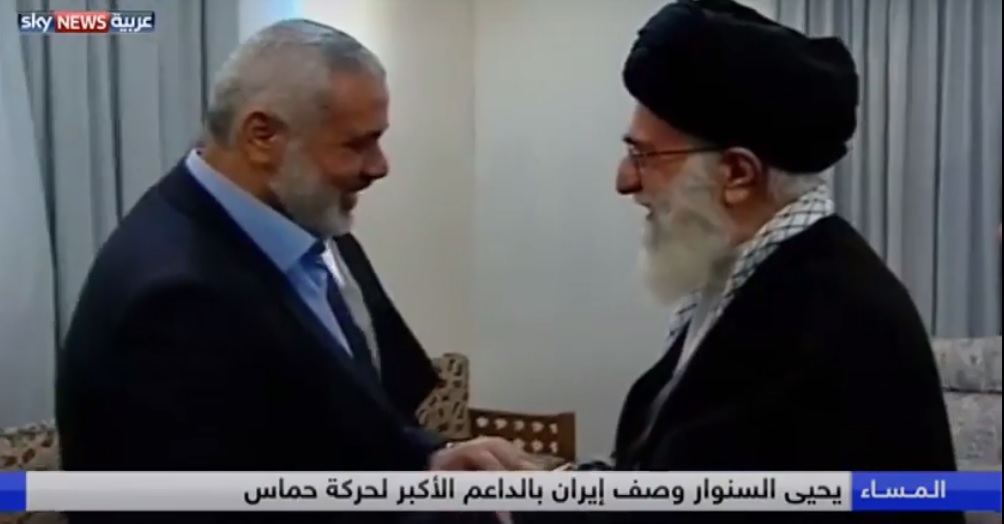Two high-level delegations from Hamas and Islamic Jihad, led by Ismail Haniyeh and Ziad Al-Nakhala, visited Tehran after a similar trip to Cairo where they discussed the possibility of a long-term truce with Israel initiated by Egypt.
However, talks in Cairo failed as both Hamas and Islamic Jihad, considering themselves resistance movements, rejected the proposal.
While Hamas is currently not interested in escalating the situation in the Gaza Strip, its strategy is to incite an armed intifada in Judea and Samaria.
However, it wishes to retain the option of launching rockets at Israel in the event of a large-scale IDF operation against terrorist infrastructure in the area.
In contrast, Islamic Jihad has an existing grudge against Israel following the IDF’s “Shield and Arrow” operation, which eliminated key members of its military wing.
Iran invited the leaders of Hamas and Islamic Jihad to discuss the outcome of Operation “Shield and Arrow” in Gaza and to coordinate the ongoing battle against Israel, following the multi-arena campaign strategy devised by Qassem Soleimani.
During their visit to Tehran, IDF forces were operating in the city of Jenin, where an IDF armored vehicle was targeted by a large explosive device, resulting in injuries to seven soldiers.
Ziad Al-Nakhallah, the Secretary-General of Islamic Jihad, congratulated the members of the “Jenin Battalion’s” engineering unit who produced the explosive device, affirming the continuation of resistance against Israel.
Furthermore, a terror attack took place in the settlement of Eli during the visit, in which two terrorists from Hamas‘ military wing killed four Israeli citizens and wounded four others.
Ismail Haniyeh, the leader of Hamas, issued a message stating that the attack in Eli was just the beginning and that Israel should expect stronger and more embarrassing consequences.
The Hamas delegation to Tehran also included Saleh al-Arouri, Ismail Haniyeh’s deputy and the head of Hamas‘ military wing in Judea and Samaria. Security sources in Israel hold him responsible for the deadly attack in Eli.
According to Hamas sources, Iran is content with the significant security escalation in Judea and Samaria and urges Hamas and Islamic Jihad to intensify their terrorist attacks.
Iran also seeks the establishment of rocket production infrastructure in the Jenin area to open another front launching rockets at Israeli cities.
During the “Shield and Arrow” operation, the head of Shin Bet, Ronen Bar, announced the arrest of several squad members in the Jenin area who were planning to establish a terrorist infrastructure for rocket production.
The IDF and Shin Bet also killed Tarek Izz a-Din, a senior Islamic Jihad official responsible for connections with the military wing of Islamic Jihad in Judea and Samaria, and attempts to establish rocket production infrastructure.
Osama Hamdan, a senior Hamas official, emphasized the significance of the Tehran visit and mentioned that the role of Israeli Arabs in the battle against Israel would be discussed during meetings between Hamas leadership and Iranian officials, considering the events during the “Guardian of the Walls” operation in May 2021. He added that the West Bank is entering a new stage of resistance against Israel.
Iran aims to capitalize on the momentum of the security escalation in Judea and Samaria, gradually increasing it to an armed intifada.
Sources within Islamic Jihad suggest that there will be more visits by the Hamas and Islamic Jihad leadership to Tehran in the near future to strengthen fronts against Israel.
Senior officials from the “Revolutionary Guards” assured Ziad Al-Nakhala, Secretary-General of Islamic Jihad, of increased weapons smuggling to the northern West Bank through the Jordanian border, along with ongoing financial support for armed groups established by Islamic Jihad in Judea and Samaria.
Ismail Haniyeh also received promises of funding from Iran in light of the severe financial crisis affecting Hamas.
The security escalation in Judea and Samaria aligns with the strategy of General Hossein Salami, commander of Iran’s “Revolutionary Guards.”
Since the conclusion of Operation “Guardian of the Walls” in May 2021, the “Revolutionary Guards,” through Islamic Jihad, have gradually built armed terrorist groups referred to as “battalions.”
Currently, there are between 20 and 30 such terrorist battalions, comprising approximately 2,000 armed terrorists in northern Samaria, and the phenomenon is spreading to central Judea and Samaria in the Ramallah area.
Israel should have dismantled these terrorist groups during their early stages, but the Biden administration pressured the Bennett and Lapid governments, arguing that a large-scale military operation could lead to the collapse of the Palestinian Authority and hinder the two-state solution.
The Netanyahu government also faces American pressure, as Defense Minister Lloyd Austin conveyed to Defense Minister Yoav Galant during their recent meeting in Brussels.
Consequently, the right-wing government must find the most appropriate means to dismantle the growing terror infrastructure in Judea and Samaria, which receives significant support from Iran.




